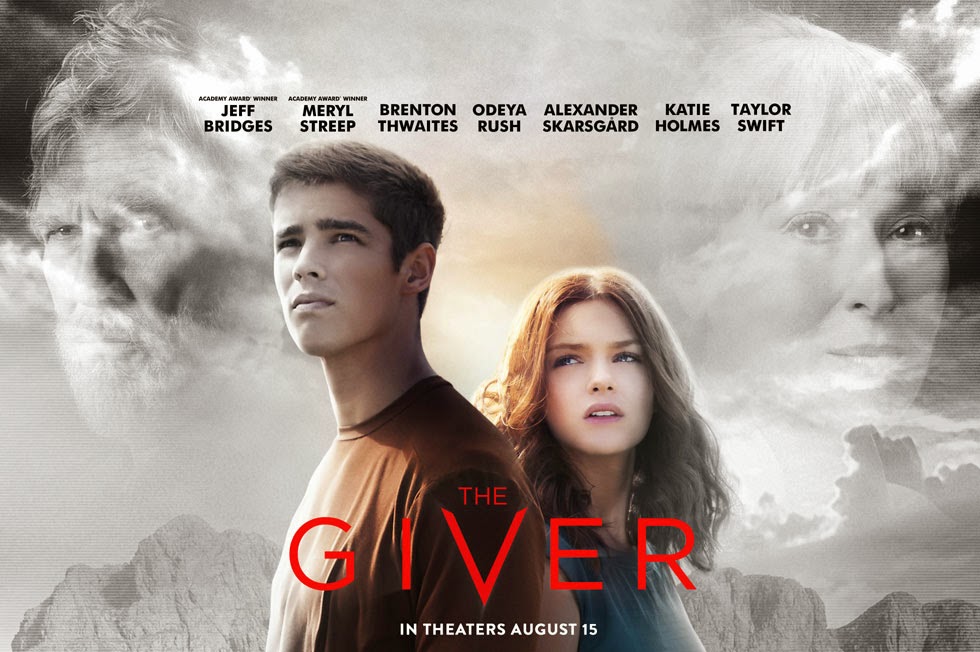As it turns out, I was the only American in my age group who
wasn’t encouraged to read Lois Lowry’s “The Giver” in middle school. For many,
this young-adult utopian science-fiction novel was a significant literary
moment in their lives and is regarded with the utmost reverence. I was there
for The Hobbit, R.L. Stine, and, though a little too old to fully appreciate
it, I was even there for the early Harry Potter buzz. Nevertheless, I
completely missed this phenomenon and wasn’t even aware of “The Giver” until a
few friends of mine begun complaining about the trailers for its recent movie
adaptation.
In the wake of politically-minded YA sci-fi adaptations such as “The Hunger Games” and
its shameless clones “Divergent” and the upcoming “Maze Runner,” it makes
perfect sense that the suits in Hollywood would choose this pop-culture moment to
green-light Lowry’s 1993 novel. In toeing the line of this tween-friendly genre, this adaptation has been given a slick CW makeover, with just enough cold austerity to imply the type of
thematic depth, to which these kinds of films usually can’t commit. That is why,
despite its mercenary attempts at cashing-in, it is both surprising and nice to
say that this film works pretty well, even if it simply functions without a whole lot
of pizazz.
In the
distant future, society has bubbled itself into a tight-knit, highly-monitored
community that is able to exist without pain, suffering, war or hunger.
Children are studied at a young age for specific attributes and skills and are
placed into jobs on their eighteenth birthday by the Chief Elder, played with a
sinister calm by Meryl Streep. Jonas (Brenton Thwaites) is a chosen last in his
graduating class to work, not as a scientist or laborer, but as a special
archivist called The Receiver. This work consists of intensive sessions where
he shares psychic memories of the old-world with an elder called ‘The Giver’
(Jeff Bridges) behind the walls of an isolated library restricted to the
outside public. With these memories comes a heightened sensitivity to both the
extreme joys of music, diversity, and love, as well as the depressing realities
of, sickness, prejudice and war. Jonas is then left to decide whether to share
the raw truth with everyone else or work keep it concealed.
Tellingly,
the cinematography conveys Jonas’ psychological arc from a worker bee to a
revolutionary through the use of color, beginning with the first item he
notices, a brilliant red apple. After his first few sessions, everything else
begins to fade out of the digital grayscale into muted pastels, ending in a
color explosion. This depiction of
enlightenment of course brings to mind Dorothy’s journey in “The Wizard of OZ”
as well the biblical story of Adam and Eve, as their knowledge of good and evil
also began with fruit. Politically, the
story’s Stepford-society recalls films made during the height of post-soviet
red-scare and unlike the socialist-leanings of Suzanne Collins’ “Hunger Games”
adaptations, this story’s more concerned with possible threat of government
controlled egalitarianism. But, lest we
get too caught up in the barely-coded ethos of the source material, the movie
itself moves from point A to B with little fuss and sufficiently rewards those
who’re willing to accept its middling ambitions.
Thwaites
blank-slate performance unfortunately never matures as his character is
supposed to be encumbered by the painful realities of the truth, and as a hero he
ultimately fails to inspire much empathy. However, veteran director Phillip
Noyce, better known for adult spy-thrillers such as “Clear and Present Danger”
and “Patriot Games,” paces the film deliberately and with enough care and
attention to the dramatic beats of the story that the movie is occasionally able
to do the actors’ work without their help.
Key scenes are skimmed over in montage, leaving the emotional component slightly
underdeveloped, but as a cursory introduction to dystopian fiction, “The Giver”
at least tries to infuse the YA genre with enough visual creative dynamism to
keep things interesting.
Originally published in the Idaho State Journal/Aug-2014

No comments:
Post a Comment